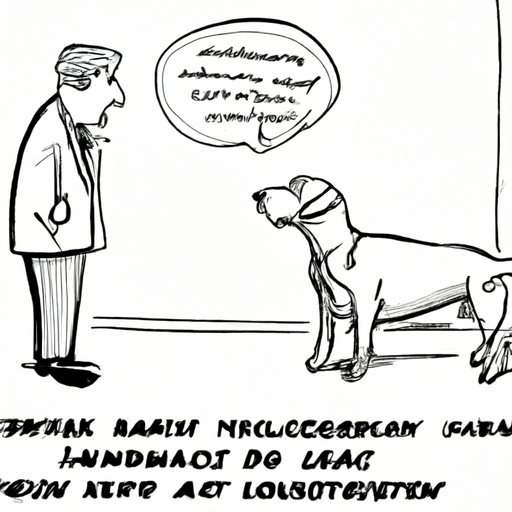Dogs are not just pets, they’re family. When they suffer, you suffer. One common ailment that can cause your furry friend discomfort are ulcers. But what causes ulcers in dogs, and how can you prevent and treat them? Let’s dive into the biology of our four-legged friends to understand this better.
What is an Ulcer?
An ulcer is a sore that forms on the skin or mucous membranes. In dogs, they usually occur in the stomach or intestines, but they can also form in the mouth or on the skin. The most common symptom of an ulcer is vomiting, often with blood. Other symptoms may include loss of appetite, weight loss, and lethargy.
Common Causes of Ulcers in Dogs
There are several causes of ulcers in dogs. Here are the most common ones:
- Medication: Some medications, particularly non-steroidal anti-inflammatory drugs (NSAIDs) and corticosteroids, can cause ulcers.
- Stress: Situations that cause stress, such as surgery or severe illness, can lead to ulcers.
- Diet: A diet high in fat and low in protein can contribute to the development of ulcers.
- Disease: Certain diseases, such as kidney or liver disease, can cause ulcers.
Other factors, such as age and breed, can also play a role. For example, older dogs and brachycephalic breeds (dogs with short noses, like Bulldogs and Pugs) are more likely to develop ulcers.
Preventing Ulcers in Dogs
As a caregiver, you want to do everything you can to prevent your dog from developing an ulcer. Here are some steps you can take:
- Monitor your dog’s diet: Make sure they’re eating a balanced diet that’s low in fat and high in protein.
- Limit stress: Try to keep your dog’s environment as calm and stable as possible.
- Be careful with medication: If your dog needs to take NSAIDs or corticosteroids, work with your vet to find the lowest effective dose.
Treating Ulcers in Dogs
If your dog develops an ulcer, it’s important to get veterinary treatment as soon as possible. Your vet may prescribe medications to reduce stomach acid and protect the stomach lining. They may also recommend dietary changes.
Here’s a table summarizing the common treatments for ulcers in dogs:
| Treatment | Description |
|---|---|
| Medication | Drugs to reduce stomach acid and protect the stomach lining. |
| Diet changes | Switching to a low-fat, high-protein diet. |
| Surgery | In severe cases, surgery may be needed to repair the ulcer. |
Frequently Asked Questions
Q: Can ulcers in dogs be cured?
A: Yes, with proper treatment, the majority of ulcers can be healed.
Q: Can I prevent ulcers in my dog?
A: While you can’t prevent all ulcers, a healthy diet, low-stress environment, and careful use of medication can reduce the risk.
Q: What should I do if I think my dog has an ulcer?
A: If your dog is vomiting, especially if there’s blood, or if they’re showing other symptoms of an ulcer, you should take them to the vet as soon as possible.
Remember, your dog depends on you for their health and well-being. By understanding what causes ulcers in dogs, you can help protect your furry friend from this painful condition.



